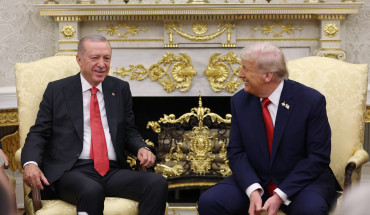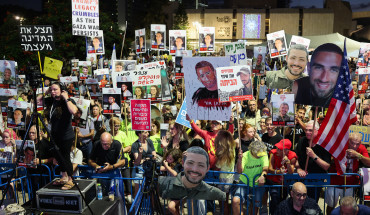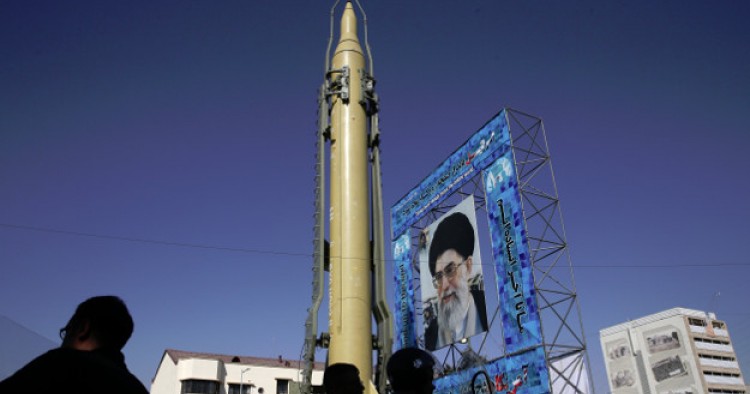As the Trump administration is attempting to push back against Iran’s controversial ballistic missile program and the country’s support for regional terrorist and sectarian groups, the Islamic Republic appears to be only escalating its provocative actions against the U.S. and its regional allies. After the Trump administration put Iran “on notice” and imposed new sanctions on Iranian entities, the leaders of the Islamic Republic made it clear that they would continue and increase their missile activity in defiance of Washington’s warnings and the U.N. Security Council Resolution 2231, which calls upon Iran to refrain from testing ballistic missiles that could carry nuclear warheads.
In a blatant act of provocation on Saturday, the Islamic Revolution Guards Corps (I.R.G.C.) conducted a military exercise, testing missile and radar systems to “showcase the power of Iran’s revolution and to dismiss the [U.S.] sanctions.” Head of I.R.G.C. Aerospace Brigadier General Amir Ali Hajizadeh warned that “our roaring missiles will fall on their heads” if Iran’s security was threatened. Another senior Iranian official threatened that his country would hit Israel and U.S. bases in the region.
Moreover, the regime in Tehran has also sent indirect threats to Washington through its regional proxies. A power I.R.G.C.-affiliated Iraqi militia group test-fired sophisticated missiles to project power. I.R.G.C.-affiliated Fars News Agency also reports that pro-Iran Iraqi parliamentarians are pressuring the government of Prime Minister Haider al-Abadi not to allow the United States to run any military bases inside Iraq. And if reports in the Iranian media are accurate, Tehran’s next ambassador to Baghdad will be senior I.R.G.C. official Iraj Masjedi, who is a close aide to Quds Force Commander Qassem Soleimani. Thus, Iranian subversive actions against U.S. interests in Iraq are likely to increase in the near future.
The Middle East Institute (MEI) is an independent, non-partisan, non-for-profit, educational organization. It does not engage in advocacy and its scholars’ opinions are their own. MEI welcomes financial donations, but retains sole editorial control over its work and its publications reflect only the authors’ views. For a listing of MEI donors, please click here.













